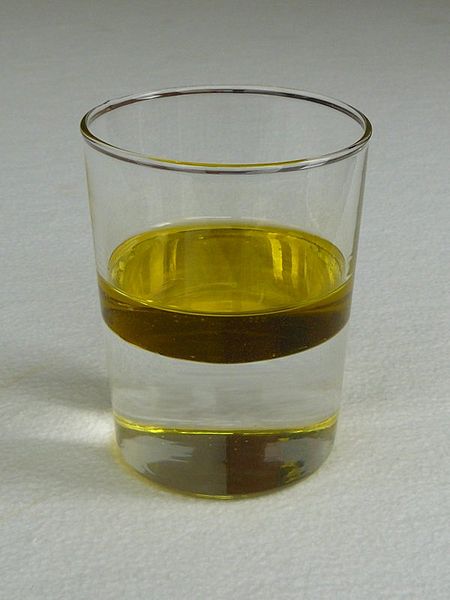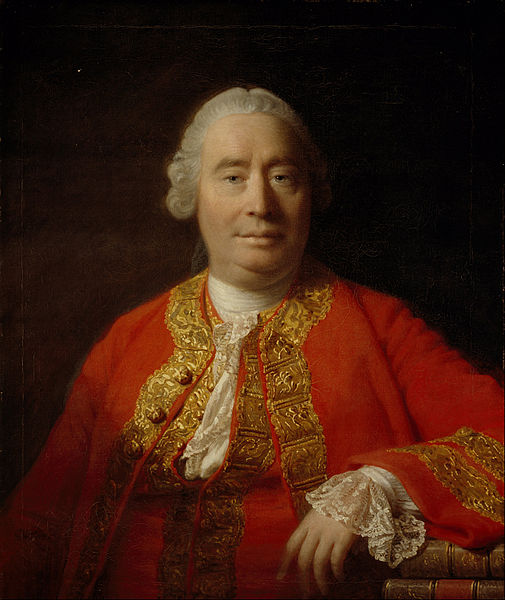The Is-Ought Problem
by Roger Kaza
Today, David Hume dissects a problem. The University of Houston presents this program about the machines that make our civilization run, and the people whose ingenuity created them.
We're all adept at forming opinions and making pronouncements. For example, here are some random comments you might well overhear while eavesdropping: One: humans are clearly omnivorous, so we ought to eat meat. Two: killing animals is cruel, so we shouldn't eat meat.
A couple more: Most people cheat a little on their taxes, so you ought to as well. Or: Most people cheat on their taxes, so you ought to set an example and be scrupulously honest. Now, don't worry, this show is not about the pros and cons of vegetarianism, or propaganda from the IRS. You're welcome to endorse or reject any of these statements. But I'd just like to point out none of them would get a passing grade from the 18th century Scottish philosopher David Hume. He would tell us all these assertions are non sequiturs, masquerading as logic. The "is" part of each sentence describes something real, but the "ought" that follows? Well ... something imaginary or hypothetical that the speaker suggests might be a good thing. We combine is and ought all the time, but to Hume, they're like oil and water ... unmixable. Instead, every moralistic judgment we make contains unspoken assumptions, reflecting mostly the world-view of the speaker. For example, our first taxpayer may believe the best thing is to pay the government as little as possible. For the second, following the rules is what matters. Oughts and words like "should" require far more supporting data than merely describing what is. And, as we've noted, multiple oughts can be derived from a single is. This lead to Hume's somewhat drastic conclusion: strictly speaking, there is no way for us to get from "is" to "ought."

Is and Ought, insoluble as oil and water. [Wikipedia/Victor Blacus]
Hume's observation troubled his contemporaries, and they struggled to refute it. Well then, where do moral 'oughts' come from, they asked, if we can't reason them out from what is? An obvious answer is that they're divinely inspired, no questions needed. But Hume politely disagreed. He felt morality came not from reason or divine mandate, but from emotions...that which excites our passions to motivate moral actions. Hume's approach was psychological — some would say modern — since he examined ethical claims from a human point of view. His ideas figured large in the English Enlightenment, and in turn in the ideals forming our new nation. Thomas Jefferson's nebulous phrase "the pursuit of happiness" is a moral ought that David Hume would likely approve.

David Hume (1711-1776) [Wikipedia]
Once your ears are attuned to is-ought statements, you'll start hearing them everywhere. "Life is short. You should seize the moment." "You're having a mid-life crisis, you should get a Ferrari." On and on, each pithy sentiment containing a suitcase full of values and suppositions. Hume's law is sometimes called Hume's guillotine, since it severed the is-ought connection. But I think it could also be called Hume's Baggage Check-In. I'm envisioning the powder-wigged Scotsman meeting me at the ticket counter. "Any particular assumptions to unpack?" he asks. "No, just the usual ones," I reply. "Just my own." And now, since the show is over, I really ought to go.
This is Roger Kaza, from the University of Houston, where we're interested in the way inventive minds work.
(Theme music)
Hume's description of the is-ought problem, from his book, A Treatise on Human Nature (1739):
In every system of morality, which I have hitherto met with, I have always remarked, that the author proceeds for some time in the ordinary ways of reasoning, and establishes the being of a God, or makes observations concerning human affairs; when all of a sudden I am surprised to find, that instead of the usual copulations of propositions, is, and is not, I meet with no proposition that is not connected with an ought, or an ought not. This change is imperceptible; but is however, of the last consequence. For as this ought, or ought not, expresses some new relation or affirmation, 'tis necessary that it should be observed and explained; and at the same time that a reason should be given; for what seems altogether inconceivable, how this new relation can be a deduction from others, which are entirely different from it. But as authors do not commonly use this precaution, I shall presume to recommend it to the readers; and am persuaded, that this small attention would subvert all the vulgar systems of morality, and let us see, that the distinction of vice and virtue is not founded merely on the relations of objects, nor is perceived by reason.
The two examples that open this essay are classic fallacies. The first is the naturalistic fallacy, which basically says that, "whatever is natural must be good." Obviously we don't believe that; cancer is also "natural." The second example is a variant of it sometimes called the moralistic fallacy: because we perceive something as "good," such as mercy to animals, nature must somehow agree with us. But this does not follow. For example, what if not eating meat diminishes our own health? (Rhetorical question only.) Is it still good?
A provocative piece from skeptic Michael Shermer, which suggests that the is-ought problem is itself a fallacy, and that we can deduce human ethics from the latest research in evolutionary theory and behavioral game theory.
Hume's philosophic successors were the Utilitarians such as Jeremy Bentham and John Stuart Mill. Among 20th century philosophers, G. E. Moore continued to analyze the is-ought problem.
Several solutions to the is-ought problem are discussed in this article from Ethical Realism blog.
Another Engines take on Hume from UH professor Rob Zaretsky.
Hume's Guillotine, Occam's Razor ... what's with all the slicing and dicing in philosophy?
Photo credits: Oil and Water photo by Victor Blacus.
Portrait of Hume by Allan Ramsay (1713-1784). Both photos courtesy Wikimedia Commons.
Special thanks to Bernhard Scully, professor of horn at University of Illinois at Urbana-Champaign, for his assistance with this episode.
This episode first aired on November 11, 2013.